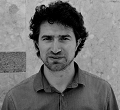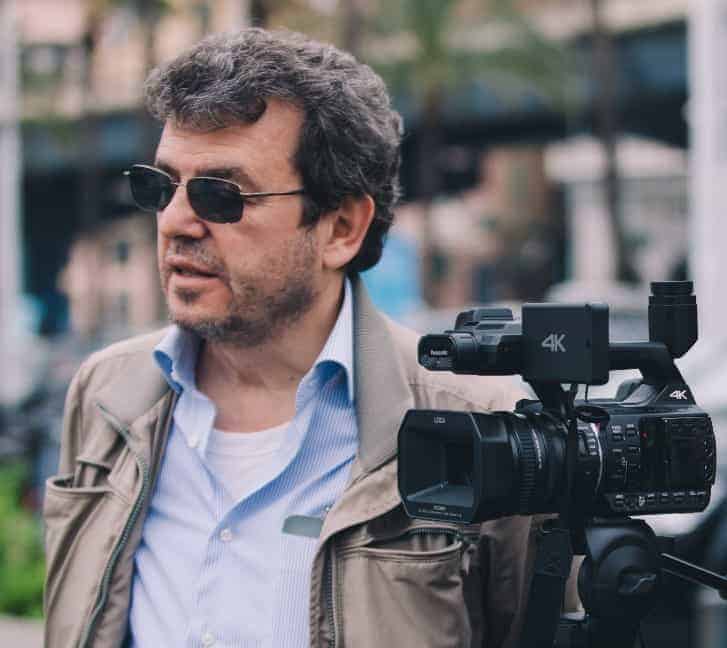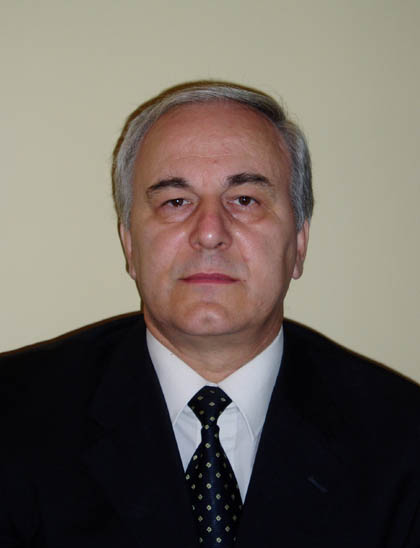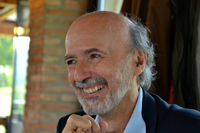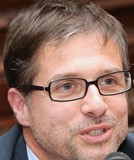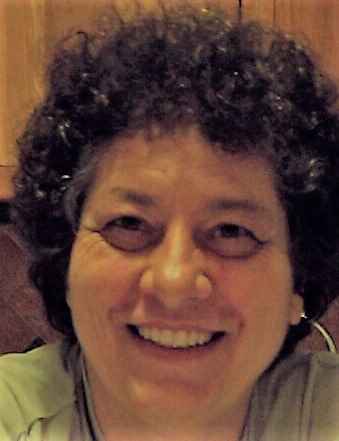Studying at the University of Verona
Here you can find information on the organisational aspects of the Programme, lecture timetables, learning activities and useful contact details for your time at the University, from enrolment to graduation.
Academic calendar
The academic calendar shows the deadlines and scheduled events that are relevant to students, teaching and technical-administrative staff of the University. Public holidays and University closures are also indicated. The academic year normally begins on 1 October each year and ends on 30 September of the following year.
Course calendar
The Academic Calendar sets out the degree programme lecture and exam timetables, as well as the relevant university closure dates..
| Period | From | To |
|---|---|---|
| First half of Semester 1 | Sep 25, 2017 | Nov 11, 2017 |
| Second half of Semester 1 | Nov 13, 2017 | Jan 20, 2018 |
| First half of Semester 2 | Feb 26, 2018 | Apr 21, 2018 |
| Second half of Semester 2 | Apr 23, 2018 | Jun 9, 2018 |
| Session | From | To |
|---|---|---|
| Sessione d'esame invernale | Jan 22, 2018 | Feb 24, 2018 |
| Sessione d'esame estiva | Jun 11, 2018 | Jul 28, 2018 |
| Sessione d'esame autunnale | Aug 27, 2018 | Sep 22, 2018 |
| Session | From | To |
|---|---|---|
| Sessione estiva | Jul 16, 2018 | Jul 21, 2018 |
| Sessione autunnale | Nov 12, 2018 | Nov 17, 2018 |
| Sessione invernale | Apr 1, 2019 | Apr 6, 2019 |
| Period | From | To |
|---|---|---|
| All Saints Day | Nov 1, 2017 | Nov 1, 2017 |
| Immaculate Conception | Dec 8, 2017 | Dec 8, 2017 |
| Christmas break | Dec 22, 2017 | Jan 7, 2018 |
| Easter break | Mar 30, 2018 | Apr 3, 2018 |
| Liberation Day | Apr 25, 2018 | Apr 25, 2018 |
| Labour Day | May 1, 2018 | May 1, 2018 |
| Patron Saint Day | May 21, 2018 | May 21, 2018 |
| Republic Day | Jun 2, 2018 | Jun 2, 2018 |
| Summer break | Aug 13, 2018 | Aug 18, 2018 |
Exam calendar
Exam dates and rounds are managed by the relevant Culture and Civilisation Teaching and Student Services Unit.
To view all the exam sessions available, please use the Exam dashboard on ESSE3.
If you forgot your login details or have problems logging in, please contact the relevant IT HelpDesk, or check the login details recovery web page.
Should you have any doubts or questions, please check the Enrollment FAQs
Academic staff
Bellomo Leonardo
 alessandro.bigardi@univr.it
alessandro.bigardi@univr.it
Cioffi Antonio
 luca.digiovanni@univr.it
luca.digiovanni@univr.it
 lor.reg@alice.it
lor.reg@alice.it
 domenico.secondulfo@univr.it - domenico.secondulfo3@gmail.com
domenico.secondulfo@univr.it - domenico.secondulfo3@gmail.com
 antonella.toffali@univr.it
antonella.toffali@univr.it
Villani Simone
 simonevillani@tiscali.it
simonevillani@tiscali.it
Study Plan
The Study Plan includes all modules, teaching and learning activities that each student will need to undertake during their time at the University.
Please select your Study Plan based on your enrollment year.
1° Year
| Modules | Credits | TAF | SSD |
|---|
To be chosen between
1/2 courses to be chosen between3 courses to be chosen between2° Year activated in the A.Y. 2018/2019
| Modules | Credits | TAF | SSD |
|---|
To be chosen between
To be chosen between
| Modules | Credits | TAF | SSD |
|---|
To be chosen between
1/2 courses to be chosen between3 courses to be chosen between| Modules | Credits | TAF | SSD |
|---|
To be chosen between
To be chosen between
| Modules | Credits | TAF | SSD |
|---|
Legend | Type of training activity (TTA)
TAF (Type of Educational Activity) All courses and activities are classified into different types of educational activities, indicated by a letter.
Music and media (m) (2017/2018)
Teaching code
4S003573
Teacher
Coordinator
Credits
6
Also offered in courses:
- Music and media (m) of the course Master's degree in Arts (interuniversity)
- History of Music (m) of the course Master’s degree in Tradition and Interpretation of Literary Texts
Language
Italian
Scientific Disciplinary Sector (SSD)
L-ART/07 - MUSICOLOGY AND HISTORY OF MUSIC
Period
First half of Semester 2 , Second half of Semester 2
Learning outcomes
The course aims to introduce students to the issues and methods concerning the study of the relationship between music and the media, focusing especially on the technologies used to fix, transmit, read and listen to music in the western world from the Middle Ages to the present.
Program
Writing, reading, listening to music from the Middle Ages to the digital era. The course offers a history of music through its media, focusing especially on their material and technological features, their uses, and their social, cultural and ideological aspects, starting from the oldest documented forms of mediatization (manuscripts, prints) and ending with the most recent ones (digital audiovisual media).
Bibliography
All books are available in the University library. The symbol * marks books available in the E-learning platform.
- lecture notes;
- NICHOLAS COOK, “Music: A Very Short Introduction”, Oxford, Oxford University Press, 1998, pp. 1-51;
- MASSIMILANO LOCANTO, “Oralità, memoria e scrittura nella prima tradizione del canto gregoriano”, in “La scrittura come rappresentazione del pensiero musicale”, a cura di Gianmario Borio, ETS, Pisa 2004, pp. 31-87;
- VINCENZO BORGHETTI, “Il manoscritto di musica tra Quattro e Cinquecento”, in “Il libro di musica”, a cura di Carlo Fiore, L’Epos, Palermo 2004, pp. 89-114;
- STANLEY BOORMAN, “I primi stampatori musicali”, in “Il libro di musica”, a cura di Carlo Fiore, L’Epos, Palermo 2004, pp. 115-136;
- TIM CARTER, “L’editoria musicale tra Cinque e Seicento”, in “Il libro di musica”, a cura di Carlo Fiore, L’Epos, Palermo 2004, pp. 137-162;
- *EMANUELE SENICI, “Il video d’opera “dal vivo”: testualizzazione e liveness nell’era digitale”, «Il Saggiatore musicale», 2009/2, pp. 272-312;
- EMANUELE SENICI, “L’opera e la nascita della televisione italiana”, «Comunicazioni sociali», 2011/1, pp. 26-35;
- JACQUES HAINS, “Dal rullo di cera al CD”, in “Enciclopedia della musica”, diretta da Jean-Jacques Nattiez, vol. 1, “Il Novecento”, Einaudi, Torino 2001, pp. 783-819;
- GIANNI SIBILLA, “Musica e media digitali. Tecnologie. Linguaggi e forme sociali dei suoni dal walkman all’iPod”, Bompiani, Milano 2008, pp. 9-74 e 88-101.
| Author | Title | Publishing house | Year | ISBN | Notes |
|---|---|---|---|---|---|
| Jacques Hains | “Dal rullo di cera al CD”, in “Enciclopedia della musica”, diretta da Jean-Jacques Nattiez, vol. 1, “Il Novecento” | Einaudi, Torino | 2001 | pp. 783-819 | |
| Vincenzo Borghetti | “Il manoscritto di musica tra Quattro e Cinquecento”, in “Il libro di musica”, a cura di Carlo Fiore | L'Epos, Palermo | 2004 | pp. 89-114 | |
| * EMANUELE SENICI | “Il video d’opera “dal vivo”: testualizzazione e liveness nell’era digitale”, «Il Saggiatore musicale» | 2009 | pp. 272-312 [L’asterisco (*) contrassegna il materiale disponibile sulla piattaforma E-Learning] | ||
| Stanley Boorman | “I primi stampatori musicali”, in “Il libro di musica”, a cura di Carlo Fiore | L'Epos, Palermo | 2004 | pp. 115-136 | |
| Tim Carter | “L’editoria musicale tra Cinque e Seicento”, in “Il libro di musica”, a cura di Carlo Fiore | L'Epos, Palermo | 2004 | pp. 137-162 | |
| EMANUELE SENICI | “L’opera e la nascita della televisione italiana”, «Comunicazioni sociali», | 2011 | pp. 26-35 | ||
| Gianni SIbilla | "Musica e media digitali. Tecnologie. Linguaggi e forme sociali dei suoni dal walkman all’iPod" | Bompiani | 2008 | pp. 9-74 e 88-101 | |
| Nicholas Cook | "Musica: una breve introduzione" | EDT, Torino | 2005 | pp. 1-45 [English edition: "Music: A Very Short Introduction", Oxford, Oxford University Press 1998, pp. 1-51] | |
| Massimiliano Locanto | "Oralità, memoria e scrittura nella prima tradizione del canto gregoriano", in La scrittura come rappresentazione del pensiero musicale”, a cura di Gianmario Borio | ETS, Pisa | 2004 | pp. 31-87 |
Examination Methods
Written text: three questions to be answered in 1h and 30m.
Type D and Type F activities
Modules not yet included
Career prospects
Module/Programme news
News for students
There you will find information, resources and services useful during your time at the University (Student’s exam record, your study plan on ESSE3, Distance Learning courses, university email account, office forms, administrative procedures, etc.). You can log into MyUnivr with your GIA login details: only in this way will you be able to receive notification of all the notices from your teachers and your secretariat via email and soon also via the Univr app.
Graduation
List of theses and work experience proposals
| theses proposals | Research area |
|---|---|
| Laureandi Editoria e Giornalismo: vademecum | Various topics |
| TESI SU COMUNICAZIONE DELL’AGROALIMENTARE | Various topics |
| Stage | Research area |
|---|---|
| Proposte stages - Centro di ricerca Skenè | Various topics |
| TIROCINIO IN GIORNALISMO E SOCIAL MEDIA | Various topics |

 +39 045802 8465
+39 045802 8465




